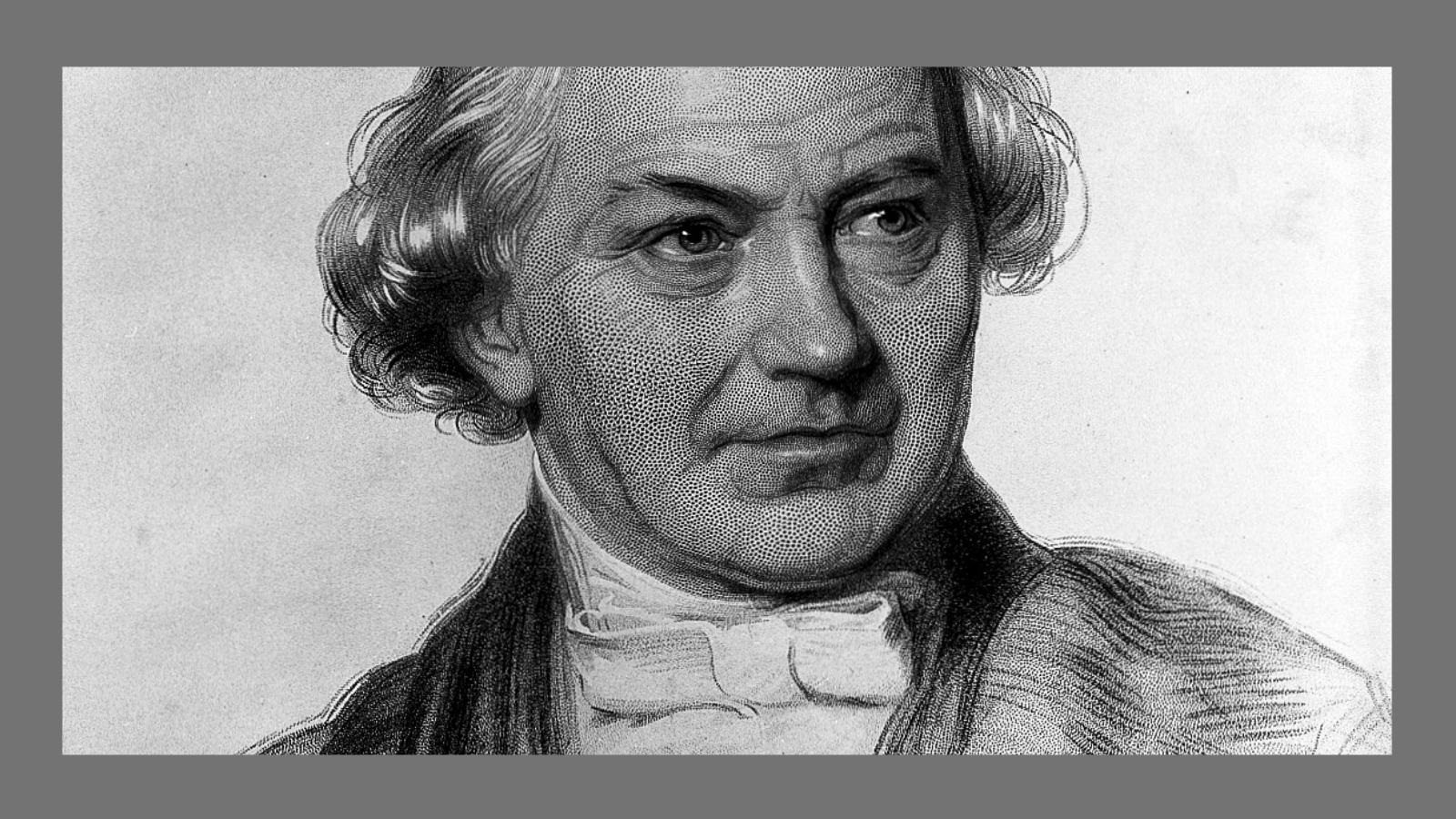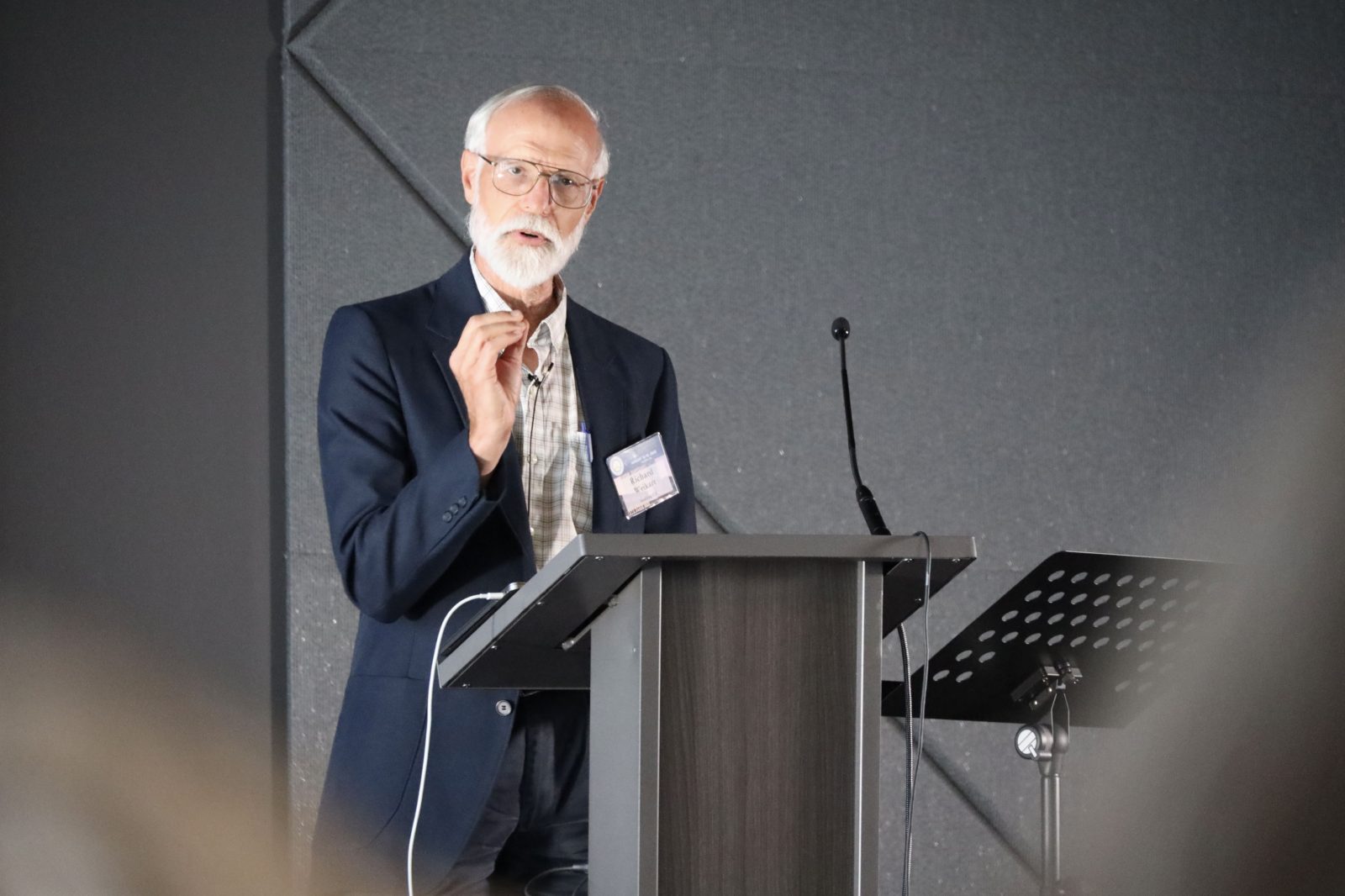


William Whewell: Statesman of Science

When Natural and Super-Natural Explanations Work Hand in Hand

Gary Habermas on the Scientific Evidence for Near-Death Experiences

How Faith Can Improve Rigor and Creativity in Scientific Research

Astrophysicist Bijan Nemati on Why Intelligent Design Matters
On today’s ID the Future, astrophysicist and intelligent design proponent Bijan Nemati shares the first part of his story of science and faith. Those who follow Discovery Institute’s Center for Science and Culture may know Nemati from his appearance in the popular ID documentary The Privileged Planet. Born and raised in Iran, he moved to the United States shortly before the Iranian revolution, became an atheist in college, but eventually found his way to a strong religious faith, in part through his exposure to the scientific evidence for intelligent design, first in biology and then in cosmology. Along the way he landed a high-level job with NASA’s Jet Propulsion Laboratory (JPL) and became a leading expert in space interferometer telescopes and the science and technology of detecting earth-like planets. Tune in as he shares with host Eric Anderson his journey of discovery.

A Physician’s Fantastic Voyage through Your Designed Body
On today’s ID the Future Your Designed Body author and physician Howard Glicksman takes a deep dive with Philosophy for the People podcast host Pat Flynn into Glicksman’s new book, co-authored with systems engineer Steve Laufmann. As Glicksman puts it, he and Laufmann look not just at how the human body looks but at what it actually takes for it to work and not die, and what this implies for evolutionary theory. Begin by piling up the layers of complexity in the human body—the layer upon layer of complex interdependent systems. Then ask hard questions about whether any blind and gradual evolutionary process could have kept our evolutionary ancestors alive at every generational stage as all this was gradually engineered by countless random mutations over millions of generations, beginning with the first single-celled organisms billions of years ago. Once one faces those hard questions without retreating to vague just-so stories about nature needing vision (or hearing or any number of other bodily functions) and therefore magically evolving it, at that point Darwinism’s story of gradual and blind evolution collapses. The explanation that is left standing, according to Glicksman, Laufmann, and Your Designed Body: intelligent design. This episode is posted her with the generous permission of Pat Flynn and the Philosophy for the People podcast.

Ann Gauger: A Scientist’s Circuitous Journey to Faith
On this ID the Future, host Eric Anderson sits down with biologist and intelligent design proponent Ann Gauger to hear her story of how she got into the intelligent design movement and how the evidence for design has shaped her life. It begins with a lonely girl on a Kansas military base who at one point loses her Christian faith but also discovers the wonders of nature, and friendship, when she is given a horse and begins taking it for long rides in the countryside. Her intellectual journey takes her to MIT, the Scripps Institution of Oceanography, the University of Washington, and eventually into the Catholic church, where she explores becoming a nun until a conversation with echoes from the Sound of Music leads her in a different direction. Tune into hear the first part of Gauger’s moving story, and come back for the second half of her conversation with host Eric Anderson. Today’s episode is the first in an occasional series, Why It Matters, spotlighting leading intelligent design researchers and hearing from them about how they got into intelligent design, why they believe ID matters to our culture, and why it matters to them personally.

Darwinian Racism Then and Now
Today’s ID the Future spotlights Darwinian racism, past and present. In this first half of a panel discussion at the 2022 Center for Science and Culture Insider’s Briefing, Darwin Day in America author John West introduces the other panel members, teases an upcoming book, Darwin Comes to Africa, and discusses his experience visiting the Museum of Criminal Anthropology in Turin, Italy, where the work of infamous Darwinian criminologist Cesare Lombroso’s racist ideas about evolution and race are on dramatic display. Then historian Richard Weikart, author of Darwinian Racism, debunks the popular media claim that white nationalist racism in America is a Southern evangelical phenomenon. Weikart shows that the most prominent white nationalists show little if any interest in promoting Christianity, but they very consistently anchor their racist ideas of white superiority and the racial struggle for supremacy in Darwinism, with straightforward links to Charles Darwin’s own ideas and arguments in The Descent of Man. Weikart is careful to emphasize that Darwinism does not necessarily lead its adherents to racism and, in fact, most Darwinists today are not racists. But racist ideas were woven into modern evolutionary thinking from the beginning and do serve as a major inspiration for white nationalist writers and even for some recent mass shooters. Weikart ends his lecture with a twist. He says there is one strongly anti-racist component in Darwinian materialism: Darwinian materialism, if true, means that all humans are equally without value — just so many DNA survival machines in a world without higher purpose or meaning. A grim takeaway, but only for those who feel compelled to embrace modern Darwinism. If you are open to questioning it, there are a wealth of resources at this podcast and at intelligentdesign.org showing that the evidence points strongly in another direction.

William Dembski: Why Intelligent Design Matters
On this ID the Future intelligent design pioneer William Dembski unpacks one of his chapters in The Comprehensive Guide to Science and Faith: Exploring the Ultimate Questions about Life and the Cosmos, which Dembski co-edited with Joseph Holden and episode host Casey Luskin. The chapter, “Why Intelligent Design Matters,” focuses on ID’s cultural implications. Dembski notes that atheists use mindless evolution to provide a God-free explanation for life and the universe. Intelligent design checks that move, showing that blind material processes couldn’t have created many things in nature, much less the cosmos itself. Intelligent design is the better explanation. What about the idea that an alien created, say, the first life on Earth (intelligent design without the need for God)? Dembski says that idea–one that some atheists have suggested as a fallback explanation—is a poor explanatory substitute for an immaterial intelligent designer.